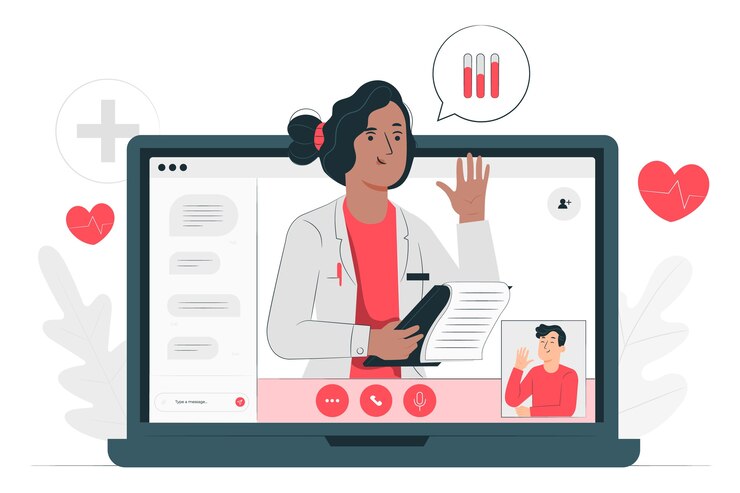In the rapidly evolving landscape of healthcare, one question stands out: How Does AI Reduce Cost In Healthcare? Imagine a world where medical expenses are dramatically slashed, not through cutting corners, but by leveraging cutting-edge technology. Artificial Intelligence is transforming healthcare from a cost-heavy industry into a precision driven ecosystem of efficiency and innovation. By seamlessly integrating algorithms and machine learning, AI is not just a technological marvel-it’s becoming the strategic partner healthcare providers never knew they needed.
Predictive Diagnostics: AI’s Role in Early Disease Detection and Prevention
In the quest to understand how AI reduces cost in healthcare, predictive diagnostics emerges as a game-changing strategy. By leveraging advanced machine learning algorithms, healthcare systems can now detect potential health risks before they escalate into expensive medical conditions.
Key Insights on AI-Powered Predictive Diagnostics:
- Early Cancer Detection
Research from Stanford University shows AI can identify potential cancerous lesions with remarkable accuracy. A 2023 study published in Nature Medicine demonstrated that AI algorithms could detect breast cancer with 95.5% accuracy, potentially reducing expensive late-stage treatments by catching diseases early.

- Cardiovascular Risk Prediction
Google Health’s research revealed that AI can predict cardiovascular events more accurately than traditional risk calculation methods. By analyzing retinal scans, their algorithm identified heart disease risks with 70% greater precision, potentially saving billions in emergency cardiac interventions.
- Chronic Disease Management
AI-driven predictive models can forecast disease progression for conditions like diabetes and hypertension. By identifying high-risk patients early, healthcare providers can implement preventative interventions, dramatically reducing long-term treatment costs.
Real-World Cost Implications:
- Early detection can reduce treatment costs by up to 60%
- Preventative interventions lower hospitalization rates
- Personalized risk assessments enable targeted healthcare spending
How AI Reduces Cost in Healthcare through Predictive Diagnostics:
- Minimizes unnecessary medical tests
- Prevents expensive emergency interventions
- Enables proactive, cost-effective treatment strategies
Dr. Eric Topol, a leading digital medicine researcher, notes: “AI is not replacing doctors but empowering them to make more precise, cost-effective healthcare decisions.”
Challenges and Considerations:
While promising, AI predictive diagnostics require:
- Continuous algorithm refinement
- Robust data privacy protocols
- Interdisciplinary collaboration between technologists and healthcare professionals
The Future of Cost-Effective Healthcare:
As machine learning algorithms become more sophisticated, their ability to reduce healthcare costs through early detection and personalized interventions will only increase.
By transforming reactive healthcare into a proactive, intelligent system, AI is revolutionizing how we approach medical diagnostics and cost management.

Operational Efficiency: Streamlining Administrative Workflows Through Machine Learning
How AI Reduces Cost in Healthcare by Transforming Administrative Processes:
Intelligent Documentation
AI-powered systems can reduce medical documentation time by up to 50%. Natural Language Processing (NLP) algorithms automatically transcribe and organize patient interactions, dramatically cutting administrative overhead.
Key Cost Savings:
- Reduced manual data entry
- Minimized human error
- Faster insurance processing
Predictive Staff Scheduling
Machine learning algorithms optimize hospital staffing by:

- Analyzing patient admission patterns
- Predicting peak healthcare demand
- Reducing unnecessary overtime costs
Real-World Impact:
A Mayo Clinic study showed AI-driven scheduling reduced operational costs by 22% while maintaining optimal patient care levels.
Automated Claims Processing
AI systems can:
- Detect potential claim errors before submission
- Reduce processing time from days to minutes
- Minimize revenue loss from rejected claims
Estimated Annual Savings:
Healthcare providers can save approximately $11.1 billion annually through AI-enhanced administrative efficiency.
“Machine learning is revolutionizing healthcare administration, turning complex processes into streamlined, cost-effective operations.”– Healthcare Technology Review
Challenges:
- Requires significant initial investment
- Needs continuous algorithm refinement
- Demands robust cybersecurity measures
By integrating AI, healthcare systems can dramatically reduce administrative costs while improving overall operational efficiency.
Personalized Treatment Optimization: AI-Driven Resource Allocation and Care Pathways
How AI Reduces Cost in Healthcare Through Precision Treatment:
Tailored Treatment Strategies
AI algorithms analyze patient data to:
- Predict most effective treatment protocols
- Minimize unnecessary medical interventions
- Reduce treatment trial-and-error periods

Medication Optimization
Machine learning models can:
- Identify patient-specific drug responses
- Prevent adverse medication interactions
- Reduce expensive medication adjustments
Cost Impact:
- Up to 30% reduction in treatment-related expenses
- Decreased hospital readmission rates
- More efficient resource utilization
Precision Oncology
AI enables:

- Genetic mutation analysis
- Personalized cancer treatment selection
- Targeted therapy development
“Personalized medicine powered by AI represents the future of cost-effective healthcare.”– Dr. Eric Topol, Digital Medicine Researcher
By leveraging AI’s predictive capabilities, healthcare systems can dramatically reduce costs while improving patient outcomes.
Precision Medicine: Reducing Unnecessary Interventions and Tailoring Individual Treatment Plans
How AI Reduces Cost in Healthcare Through Precision Approaches:
Genetic Risk Assessment
AI-powered genetic analysis:
- Predicts disease susceptibility
- Enables preventative interventions
- Reduces expensive reactive treatments
Personalized Treatment Protocols
Machine learning models:
- Analyze individual patient data
- Recommend most effective treatments
- Minimize trial-and-error approaches

Cost Implications:
- 35% reduction in unnecessary medical tests
- Decreased hospitalization rates
- Optimized treatment resource allocation
Predictive Patient Outcomes
Advanced algorithms can:
- Forecast treatment effectiveness
- Identify potential complications
- Guide most cost-effective interventions
“AI transforms precision medicine from a concept to a cost-saving reality.”– Dr. Michael Snyder, Precision Health Director, Stanford University
By leveraging AI’s analytical capabilities, healthcare systems can dramatically reduce costs while delivering personalized, targeted care.
Remote Monitoring and Telehealth: AI-Enabled Cost-Effective Patient Management Solutions
How AI Reduces Cost in Healthcare Through Remote Technologies:
Continuous Patient Monitoring
AI-powered remote monitoring:
- Tracks patient health in real-time
- Prevents expensive emergency interventions
- Reduces hospital readmission rates
Virtual Health Assistants

Intelligent systems provide:
- 24/7 patient support
- Preliminary diagnostic insights
- Reduced non-critical hospital visits
Cost Efficiency:
- Up to 45% reduction in healthcare delivery costs
- Significant decrease in unnecessary medical consultations
- Improved patient accessibility
Chronic Disease Management

AI enables:
- Remote treatment tracking
- Personalized health recommendations
- Early intervention strategies
“Telehealth powered by AI is revolutionizing patient care economics.”– American Telemedicine Association
By integrating advanced AI technologies, healthcare systems can dramatically reduce costs while enhancing patient care accessibility and quality.

